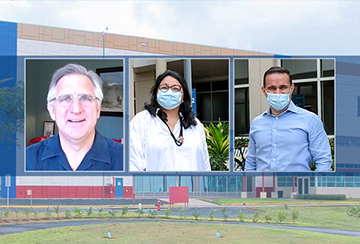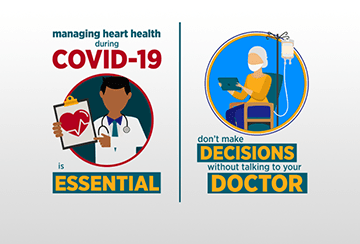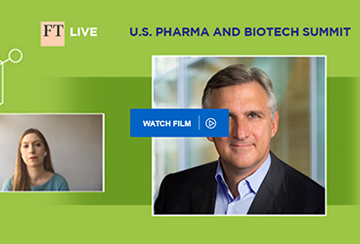What event brings together a lineup of speakers ranging from U.S. Treasury Secretary Steve Mnuchin and wellness guru Deepak Chopra to the rapper Common and our own CEO Bob Bradway? It’s the annual Milken Global Conference, which attracts some 4,500 high-profile participants representing industry, government, non-profits, academia, and the media. It’s the flagship event of the Milken Institute, a think tank established in 1991 by financier and philanthropist Michael Milken to advance economic growth and promote health.
On October 13, Bradway participated in a panel discussion focused on “Chronic Disease, COVID-19, and the Path to Improved Health.” Patients with chronic conditions like heart disease and obesity are facing a very challenging set of circumstances right now. Not only are they especially vulnerable to COVID-19, but fear of contracting the virus also has deterred many from seeking both routine and acute medical attention.
Bradway noted that advances in human genetics are rapidly improving our ability to predict who is at greatest risk for chronic disease and to prevent the life-altering health events that often result from these diseases. But he questioned whether the U.S. healthcare system provides adequate incentives to do so. “Cardiovascular disease, for instance, is the most prevalent and costly disease on our planet,” he said. “Based on genetics and other risk factors, we can predict who is at highest risk of experiencing a heart attack or stroke, and we have therapies that can meaningfully reduce that risk. Unfortunately, the high out-of-pocket cost of some of these treatments can discourage their use.”
Similarly, Bradway noted that 400,000 women a year in the U.S. suffer an osteoporosis-related fracture – even though we know which women are at greatest risk and have medicines available to lower that risk. “A woman who falls and breaks her hip will find it much more expensive to be taken to the emergency room and treated in the hospital compared to what a preventive therapy might have cost her,” he said. “The economic incentives are not well aligned.”
Bradway also discussed the biopharmaceutical industry’s contributions to the fight against COVID-19. “We are working to find answers to the larger question of what long-term consequences the virus will cause for people who are infected,” he said. “At the same time, the industry is working collaboratively to find new means to break the back of this pandemic, including vaccines, neutralizing antibodies, and anti-inflammatory medicines.”
The panel was moderated by Joanne Kenen of POLITICO and included Obesity Action Coalition CEO Joe Nadglowski and Prudential Chief Medical Officer Sharon Smith.





